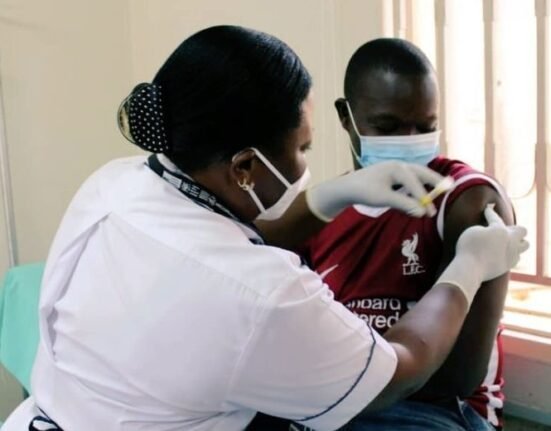HQ Team
February 26, 2024: An asthma drug, omalizumab, can “significantly” reduce the risk of allergic reactions caused by multiple foods among children and adults in case of accidental exposure, according to a study funded by the US medical research agency.
After data emerged from the final stage of a clinical trial, funded by the National Institutes of Health’s National Institute of Allergy and Infectious Diseases, on February 16, 2024, the FDA approved omalizumab.
The FDA green-lighted the injectable drug for the reduction of allergic reactions, including anaphylaxis, that may occur with accidental exposure to one or more foods in adults and children aged one year and older with food allergies.
People taking omalizumab still need to avoid foods they are allergic to. Omalizumab is not approved for the emergency treatment of allergic reactions, including anaphylaxis, according to an NIH statement.
The results of the study were presented at the American Academy of Allergy, Asthma & Immunology meeting in Washington on February 25.
Roche Group, Novartis
The National Institute of Allergy and Infectious Diseases got additional support from and collaboration with Genentech, a member of the Roche Group, and Novartis Pharmaceuticals Corporation. The two companies collaborated to develop and promote omalizumab, marketed as Xolair, and were supplying it for the trial.
“People with food allergies and their caregivers need to maintain constant vigilance to avoid foods that could cause a potentially life-threatening allergic reaction. This is extremely stressful, especially for parents of young children,” said Jeanne Marrazzo, MD, MPH, director of the National Institute of Allergy and Infectious Diseases, the trial’s regulatory sponsor.
“Although food avoidance remains critical, the findings reported today show that a medicine can help reduce the risk of allergic reactions to common foods and may provide protection from accidental exposure emergencies.”
Limited treatments
Omalizumab injection is in a class of medications called monoclonal antibodies. It works by blocking the action of a certain natural substance in the body that causes the symptoms of allergic asthma, nasal polyps, and hives. It is very effective in treating children and adults with moderate to severe allergic asthma.
“While allergic reactions to exposures are common and often severe, there have been limited treatment advancements for food allergy,” said Robert Wood, MD, director of the Eudowood Division of Allergy, Immunology and Rheumatology at Johns Hopkins Children’s Center, and principal investigator of the study.
The results showed that the therapy “could significantly reduce the occurrence of allergic reactions across multiple foods in the event of an accidental exposure.”
Nearly 67% of participants who completed the antibody treatment could consume a single dose of 600 milligrams (mg) or more of peanut protein, equivalent to 2.5 peanuts, without a moderate or severe allergic reaction compared to 7% in the placebo group.
177 children
The trial enrolled 177 children and adolescents ages one to 17 years and three adults ages 18 to 55 years, all with confirmed allergies to peanuts and at least two other common foods among milk, egg, cashew, wheat, hazelnut or walnut.
The 16-week course of omalizumab increased the amount of peanut, tree nuts, egg, milk and wheat that multi-food allergic children could consume without an allergic reaction in the late-stage clinical trial.
“Investigators found that omalizumab was superior to placebo in increasing the reaction threshold for peanut, milk, egg and cashew — as well as wheat, walnut and hazelnut — to levels that likely would protect against allergic reactions upon accidental exposure,” according to the NIS statement.
An estimated 7.6% of children in the United States — roughly 5.5 million kids — have food allergies.








